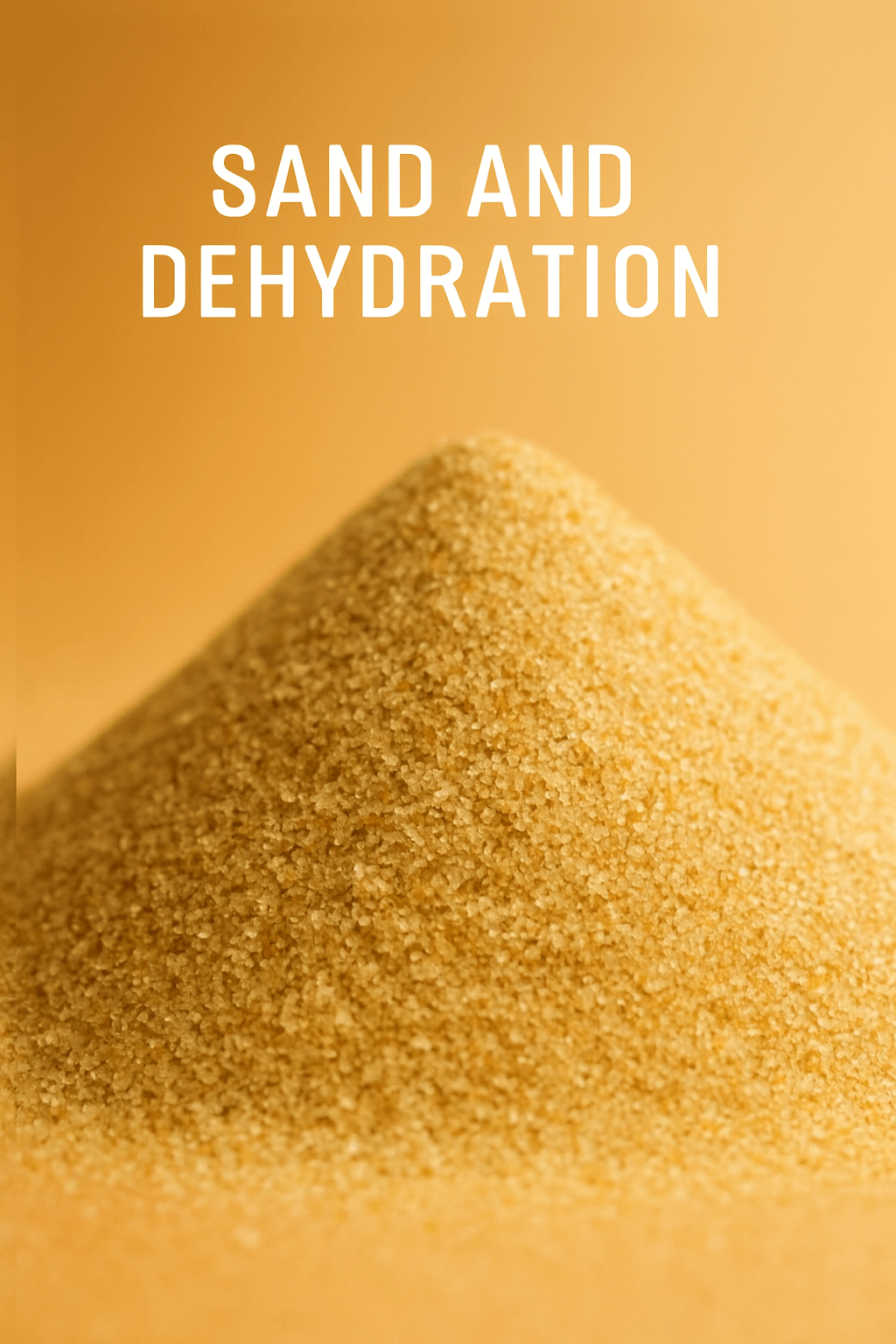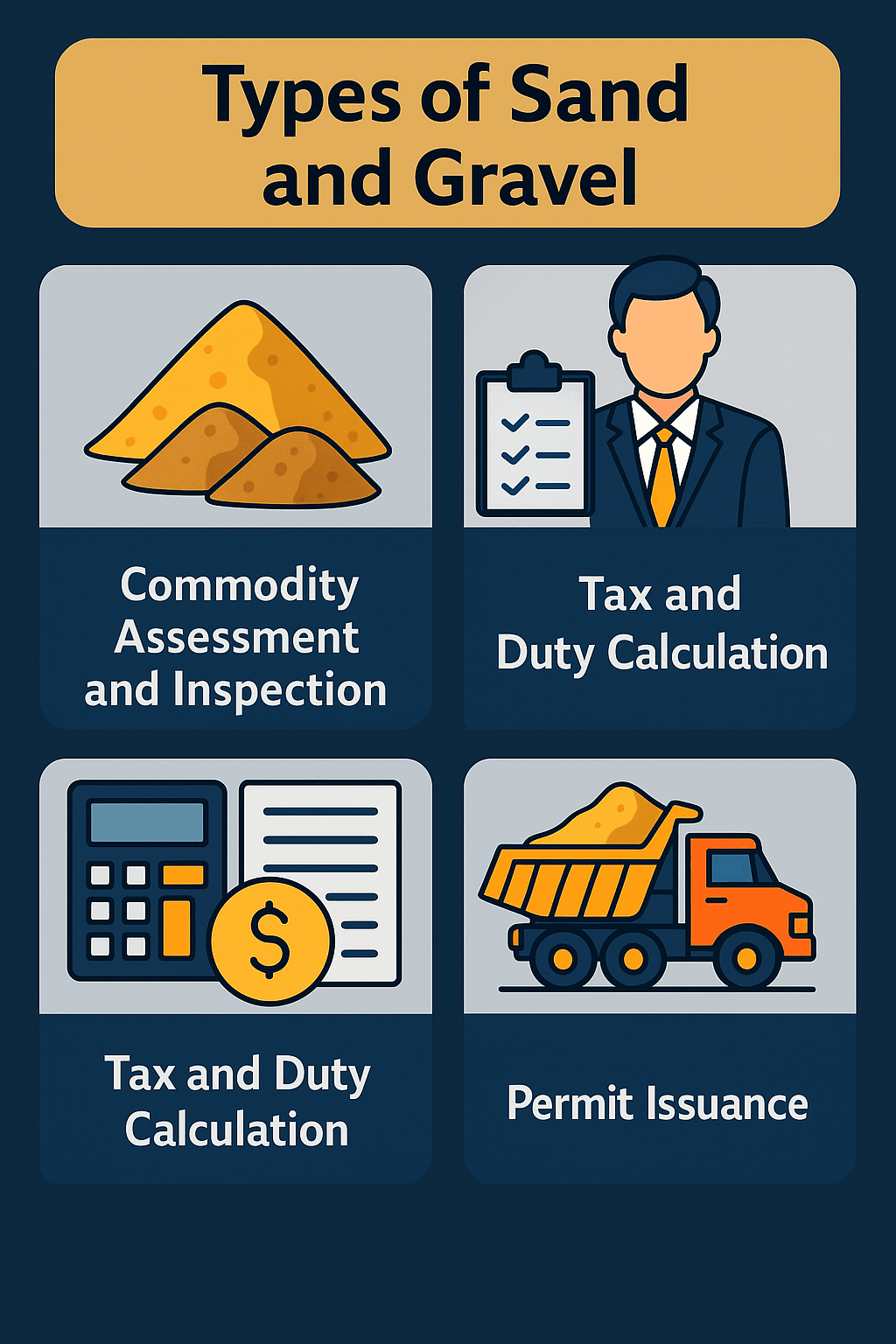Customs Clearance of Sand and Gravel in Iran (HS Code + Documents and Permits)

For estimating the time and cost of sand and gravel clearance, contact the experts at Saba Tarkhis.
Instant, Free Consultation1) Diverse Applications of Sand and Gravel
Concrete and Cement Production
Water Filtration
Road Construction and Subbase
Block and Precast Production
2) Key Points for Customs Clearance of Sand and Gravel
To clear these items, compliance with regulations and preparation of the required documents are critical. Important notes:
- Obtain legal permits: from the Ministry of Industry, Mine and Trade and also the Department of Environment as required.
- Laboratory testing: confirmation of chemical composition, physical properties, and quality per national/international standards.
- Environmental considerations: if extracted from sensitive areas, obtaining related permits is mandatory.
- High weight and volume: requires precise planning for transportation and storage with appropriate equipment.
3) Customs Tariffs and HS Code
- HS Code 25051010: Natural siliceous sands—applications in water filtration and chemical industries.
- HS Code 25051090: Other sands and gravels—for production of building materials and industrial uses.
| Goods | Short Description | HS Code |
|---|---|---|
| Natural siliceous sand/gravel | Used for water filtration and industrial purposes | 25051010 |
| Other natural sands and gravels | For construction materials and industrial uses | 25051090 |
| Pebbles, gravel and crushed stone | Used in road construction/subbase | 2517 (example) |
Determining the exact heading depends on origin type, grading, siliceous/carbonate purity, end-use, and technical documents.
4) Required Documents for Clearance
- Bill of Lading including type/weight/volume/origin/destination; serves as a title document.
- Commercial Invoice with price details, sales terms, and parties’ particulars for customs valuation.
- Certificate of Origin issued by the chamber of commerce in the country of origin.
- Environmental permits if extracted from protected or sensitive areas.
- Customs Declaration with type/weight/value and precise HS Code (usually by a broker).
- Quality and Standards Certificates to comply with national/international standards (typically by inspection companies).
- Transport insurance policy to cover transit risks.
- Ministry of Industry, Mine and Trade permit as applicable for imports.
- Valid trade card for the importer.
- Delivery order after paying duties and charges to release the goods.
- Proforma Invoice in the initial stages before the final invoice.
5) Order Registration and Obtaining Required Permits
6) Special Clearance Conditions and Restrictions
7) Specific Import and Export Conditions for Sand and Gravel
8) Exporter/Importer Countries and Trade Volumes
Need an exact HS Code and guidance on environmental permits? Our team manages your case end-to-end.
Submit a Proforma Request
Frequently Asked Questions
What is the HS Code for sand and gravel?
For natural siliceous sand/gravel, typically 25051010, and for other types 25051090. Depending on type, grading, and use, other headings such as 2517 may also apply.
What documents are required for clearance?
Bill of lading, commercial invoice, certificate of origin, customs declaration with precise HS Code, quality/standards certificates, insurance policy, environmental permits if applicable, Ministry of IMT permit, trade card, and finally the delivery order.
Are there environmental restrictions on importing sand and gravel?
Yes. If extraction is from sensitive or protected areas, obtaining environmental permits is mandatory. Also, in some regions of the country, imports may be prohibited or restricted.
How is transportation of sand and gravel managed?
Due to high weight/volume, the use of bulk cargo vessels and specialized trucks is recommended. Precise route planning, scheduling, and storage control costs.
Specialized Sand and Gravel Clearance Services by Saba Brokerage
Leveraging experience and expertise in clearing bulky and heavy goods, Saba Brokerage offers specialized services for customs clearance of sand and gravel—from pre-import consultation and permit acquisition to document management and close tracking of clearance steps.
Service Highlights:
- Pre-import expert consultation: support in obtaining legal permits, preparing required documents, and selecting the optimal route.
- Accurate tracking of clearance steps: from cargo arrival to final release, utilizing e-systems to accelerate processing.
- Document review and compliance: verifying all import/export documents against regulations to prevent legal issues.
- High-speed customs processing: relying on effective coordination with relevant bodies to reduce dwell time and warehousing costs.
- Logistics optimization: employing the best transport modes and storage facilities to manage high cargo weight/volume.
.png)
